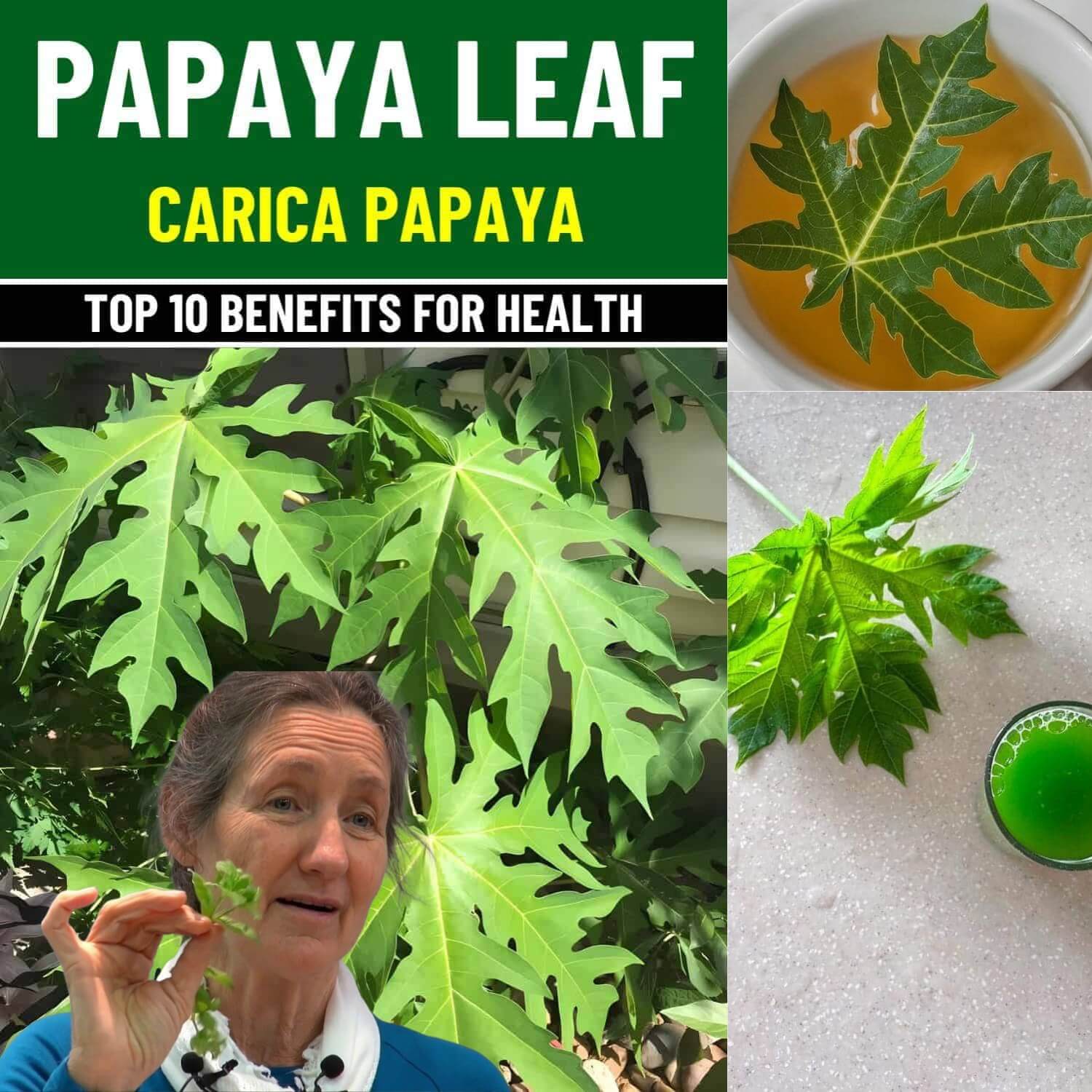Papaya (Carica papaya) is widely known for its delicious fruit, but its leaves are packed with potent health benefits. Loaded with enzymes, vitamins, antioxidants, and other active compounds, papaya leaves have a long history of use in traditional medicine for treating various health issues. One of their most notable applications is in aiding the recovery process for dengue fever. Let’s explore how papaya leaves can help manage dengue symptoms and support healing.
Can Papaya Leaf Help with Dengue Fever?
Papaya leaf may not directly cure dengue fever, but it can serve as a valuable complementary remedy. Its ability to enhance platelet production, strengthen the immune system, and reduce inflammation makes it an excellent support tool during recovery from dengue when used alongside conventional treatment.
What Science Says About Papaya Leaf and Dengue
Research supports the use of papaya leaf in dengue management. A 2016 study published in BMC Complementary Medicine and Therapies reported a significant rise in platelet counts in patients who consumed papaya leaf extract. Similarly, a 2013 study in the Asian Pacific Journal of Tropical Biomedicine found that papaya leaf juice boosted platelet production, reducing the overall recovery time for dengue patients.
Key Benefits of Papaya Leaf in Dengue Recovery
1. Helps Increase Platelet Count
A drop in platelet count is a major complication of dengue fever, which can lead to internal bleeding. Papaya leaves contain carpaine and papain, two powerful compounds that stimulate bone marrow to produce more platelets. This can help stabilize blood counts and reduce complications during the illness.
2. Enhances Immune Function
Papaya leaves are rich in vitamin C and flavonoids, both of which play a crucial role in strengthening the immune system. They enhance white blood cell function, enabling the body to fight off the dengue virus more efficiently and preventing other infections during the vulnerable recovery phase.
3. Reduces Inflammation and Pain
Dengue often causes inflammation, resulting in joint pain, muscle aches, and discomfort. Papaya leaves contain anti-inflammatory agents such as alkaloids and rosmarinic acid, which help relieve these symptoms and promote comfort during illness.
4. Supports Liver Health and Detoxification
The detoxifying enzymes in papaya leaf also aid liver function, which is often stressed during dengue. These enzymes help eliminate harmful toxins and support liver recovery, ensuring better overall health as the body heals.
How to Use Papaya Leaf for Dengue Support
Papaya Leaf Juice
To prepare the juice, take 2–3 fresh papaya leaves and rinse them thoroughly. Blend or crush the leaves with a small amount of water and strain the mixture to collect the juice. For best results, drink 2–3 tablespoons of this juice twice daily during recovery. It’s important to use fresh leaves and consume the juice promptly to preserve its potency.
Precautions to Keep in Mind
While papaya leaf juice is generally safe in moderation, it’s essential to stick to the recommended dosage—no more than 2–3 tablespoons of juice or 1–2 cups of tea per day. Exceeding this amount may cause side effects such as nausea or stomach upset. Additionally, some individuals may have allergic reactions like rashes or itching. If any adverse symptoms occur, discontinue use immediately.
Disclaimer
This content is intended for informational purposes only and should not be considered medical advice. Always consult a healthcare professional before starting any new treatment, especially for serious conditions like dengue fever.
